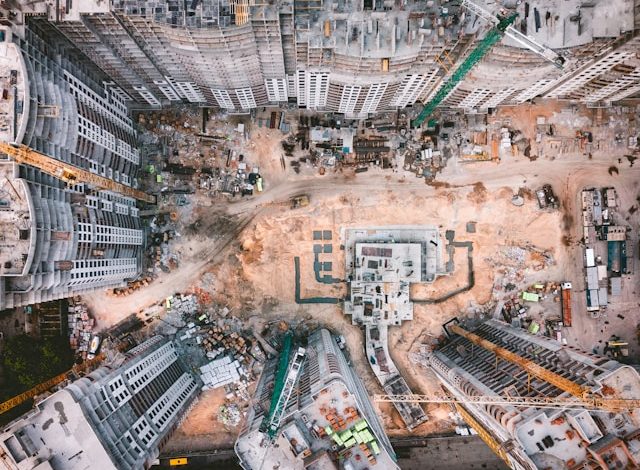
SUSTAINABILITY IN CONSTRUCTION PROJECTS
Sustainability has become a central element in every aspect of modern society, including the construction sector. Sustainable construction projects are essential for reducing environmental impact, improving energy efficiency, and promoting socially responsible practices. This article will explore the main strategies and practices that can be adopted to make construction projects more sustainable.
Sustainable Planning
Sustainability in construction projects begins with careful planning. This phase involves assessing the environmental impact of the project and identifying solutions to minimize negative effects. Sustainable planning practices include:
- Life Cycle Analysis: Assess the environmental impact of the project throughout its life cycle, from material production to demolition.
- Site Selection: Prefer urbanized or brownfield sites over greenfield ones to reduce land consumption.
- Integrated Design: Collaborate with architects, engineers, and other professionals to develop innovative solutions that integrate sustainability and efficiency.
Sustainable Materials
The choice of materials is crucial for reducing the environmental impact of a construction project. Here are some strategies for selecting sustainable materials:
- Recycled and Recyclable Materials: Use materials that can be recycled at the end of their life cycle or that come from recycling processes.
- Low-Carbon Materials: Prefer materials that require less energy to produce, such as FSC-certified wood or bio-based materials.
- Local Suppliers: Purchase materials from local suppliers to reduce transportation-related emissions.
Energy Efficiency
Energy efficiency is a fundamental aspect of sustainability in construction projects. The following practices can help reduce energy consumption:
- Use of Renewable Energy: Install solar panels, wind turbines, or other renewable energy sources to power the construction site.
- Efficient Machinery and Equipment: Use machinery that meets high energy efficiency standards and complies with emission regulations.
- Energy Management: Implement energy management systems to monitor and optimize energy use during all phases of the project.
Waste Management
Sustainable waste management is another critical aspect. Here are some strategies for managing waste efficiently:
- Waste Reduction: Design to minimize waste and debris generated during construction.
- Recycling and Reuse: Implement recycling programs for materials such as concrete, wood, and metals. Promote the reuse of salvaged materials.
- Responsible Hazardous Waste Management: Treat and dispose of hazardous waste in accordance with regulations to avoid contamination.
Worker Well-Being
Sustainability is not just about the environment but also about social and economic well-being. Ensuring that construction workers operate in safe and healthy conditions is fundamental:
- Health and Safety: Implement strict safety protocols to prevent injuries and illnesses.
- Training and Awareness: Offer training programs to increase workers’ awareness and skills in sustainability.
- Fair Working Conditions: Ensure fair working conditions, including adequate wages and reasonable working hours.
Conclusion
Sustainability in construction projects is an achievable goal through a combination of careful planning, sustainable material selection, energy efficiency, responsible waste management, and attention to worker well-being. Implementing these practices not only helps reduce environmental impact but can also lead to long-term economic savings and improve the company’s reputation. Sustainable construction is therefore not only a responsibility but also an opportunity to innovate and improve the construction sector.
